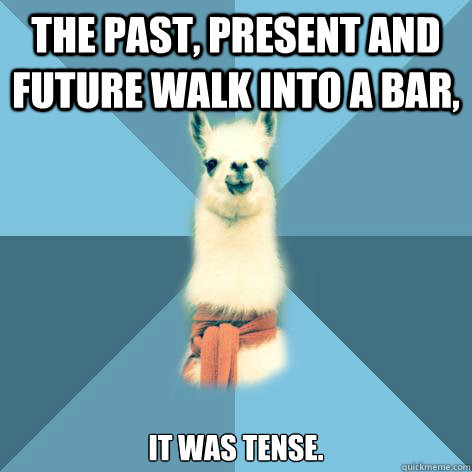Becoming Bilingual
A Native Speaker's Secrets
Welcome, budding polyglot! One of the most interesting aspects of learning a new language is realizing how little people know, generally speaking, about their own native language. This is something you will experience, if you haven't already. However, it is not a bad thing for you to recognize! It is far worse, in fact, to go on without recognizing this weakness. It is impossible to solve problems you refuse to acknowledge exist. First, though, let's talk about some things that are consistent across just about any language.
Crutch Words
Crutch words are words that are used to fill space, to avoid silence, to express oneself in a less than ideal way, or words that are constant 'go to' words that are used to avoid thinking of other ways to say something. I do it, you do it, everyone does it.
When I ran a sales office, in another lifetime, I used to keep a bucket of candy on my desk. Whenever my staff and sales leaders were training or role playing, I would have them stand in front of me and anytime they said, "umm" or "hmm" or "err" or anything that could fill dead space, I threw a piece of candy at them. The first time I tried this, I almost ran out of candy to throw. However, after only a couple of weeks they had almost completely stepped away from these crutches.
I share this story to demonstrate a couple of things. First, we all use these and the longer we use them the harder the habit is to break. Second, and more importantly, the habit can be broken with enough intentional effort. This means that you can use them when you are learning a new language, and I think it is actually worth it to at least understand what the crutch words are in your target language. With that in mind, let's take a look at the different forms of crutch words.
Filler Words
These are by far the most common and the ones I would spend the most time "studying" as you embark on your language acquisition journey. In English these words look something like this:
Umm
Ya know
And stuff
Err
Hmm
Uhh
You see
So…
Yeah…
And I'm sure there are plenty that I have missed. When used in a sentence these words do little to nothing in furthering the significance of that sentence. Here are how some of these words look in French:
Ben
Enfin
Hein
Umm
Tu vois
Alors
Et oui
If you are just learning French, it is okay to be using these words. More importantly, though, it is important to be able to recognize these words on command so that you are not wasting brain power parsing words that have no significance. As I said before, it is important to not become reliant on these words. They are crutches, not wheelchairs. The point is to get better and get away from them over time. That said, there are some that will be valuable to have in your back pocket well into your language acquisition. Near future words are a good example of this, but what are they?
The Near Future Tense
The near future tense is one of the most powerful tools a new language learner has when advancing in their target language. This can be difficult to conceptualize as an English speaker because almost all of our future tense would be qualified as near future in a romance language. In short, the near future tense is saying I "am going to" do something rather than saying I "will" do something. As you get further along in conjugation, you will be able to step away from this, and you should. However, when you are getting started, being able to express yourself, even if not entirely accurate, is most important.
This is NOT a tool to avoid conjugation. It is a tool to express yourself while you are still learning and a great way to stack Ws early on in your experience.
When you are using the near future tense you only need to learn the conjugation of one verb and you can use this bought time to practice other verbs all while expressing yourself in a new temporal sense.
In French it looks like this:
The word "to go" is "aller" and so in order to express ourselves in the near future we have to conjugate this verb and this verb only. The near future is created by using the conjugation of "aller" (or to go) + infinitive verb.
So, the conjugation:
Je vais
Tu vas
Il/elle/on va
Nous allons
Vous allez
Ils/Elles vont
Here is what it looks like in action:
Je vais manger = I am going to eat
Tu vas travailler = you are going to work
Elle va voyager = she is going to travel
Nous allons gagner = we are going to win
Vous allez conduir = you are going to drive
Ils vont jouer = they are going to play
The future tense in English is interesting because we don't have a suffix or prefix we can attach to verbs to alter them in that way. Instead we say "I am going to…" or "I will…" which means you can use this for quite some time while you master the other conjugations; and you must work to master the other conjugations. As I said, crutches are great, use them while you get better, but do not become dependent on them.
While you need to you can use these to stack Ws and practice verbs while you continue to progress in the language. Slowly but surely as you continue to use the language you will get a better grasp of timing and know when is most appropriate to use this versus when you would use a future tense. We will talk about timing in a coming article. Here is a thread with a brief overlook:
Smooshed Words
As anyone who has ever spoken with a native speaker in their target language will tell you, there are times when entire sentences seem like one or two words. There are times when it is almost impossible to differentiate words when you're learning and this can be discouraging. With that in mind, there are some strategies you can use to start understanding better sooner.
First, I recommend reading short hand and text messages (text a friend in the language) to see where these things start. We do it in English, too. Here are some examples in English for perspective:
Gonna
Kinda
Sorta
Shoulda
Coulda
Woulda
Imma
There are certainly more but those are just off the top of my head. In French it looks something like this:
"jsais pas" (shaypaw) = I don't know
"jsuis" (shwee) = I am
y'a (ya) = Il y a = there is
'fin short for enfin = crutch word = similar to "ya know"
t'as (taw) = tu as (this is common with verbs that begin with a vowel)
So that's what it looks like and it is something you will see in almost every language. There are ways, however, to find out what's going on and begin participating in the slang. It will help in the long run, particularly with integration, if that is something you are interested in, that is. Here are some of the things I did to overcome this issue.
Strategies to Understand Native Speakers:
Ask questions
I remember the first time I ever asked what I thought was a stupid question only to learn more than I ever thought possible just by being open to asking the question. I couldn't understand for the life of me what "shaypaw" meant (that's how it sounds in French) so I asked my host mom. She told me it means "I don't know" (normally je ne sais pas). That is when I learned that spoken French doesn't use the "ne" when negating. Revolutionary. Though it took some time for me to learn that it is necessary when writing. Pay attention to these patterns and you will be rewarded.
One of the best ways to find and begin isolating these patterns is by texting native speakers and hearing how they speak with one another.
Meet Native Speakers
The best advice I can give on getting to understand a native speaker in your target language is by making friends with one, or many. All of the Germans I know learned English by watching TV and playing videogames. Yes, they had classes, but as we know classes don't always help. If anything they provide vocabulary that one can use during actual practice. All that matters at the end of the day is that you are using the language, but it can be difficult if you don't at least make an effort to connect with some native speakers. People are better than they get credit for by and large and it is always worth it to make new friends when you are working on your target language.
Another advantage here is that they will write to you in short hand. Seeing it can often explain why they speak the way they do. At least for me, being able to make the sight-sound connection is so helpful in remembering what I am learning.
If you are struggling to find some native speakers to work with, the next best option is podcasts. Generally speaking, people on podcasts will speak as they would in an everyday situation. This offers an opportunity that audiobooks do not in that it will be what it is like on the ground, rather than a slowly read and perfectly annunciated book.
Whatever you do, just be sure that you are hearing your target language for a few hours every week so that you can tune your ear. This process takes time, but the more time you spend listening now the easier you will have it when you are on the ground in a country that speaks your target language exploring with the locals.
The last thing you should try when listening to podcasts and even audiobooks is called dictation. Essentially you will listen to a sentence or two then try to write down everything you understood. Play it again and see if you were close (make sure you have a transcript to check yourself. See these playlists for some audiobooks. I will get podcast recommendations up by this weekend's special announcement!)
This will take time, but try to be consistent with it as you will notice the progress quickly if you can keep it consistent. Again, make sure you are keeping a notebook to keep track of everything. It is worthwhile to have things on paper to look back on when you are feeling stagnant.
Conclusion
There are tricks that can accelerate and enhance your language acquisition, but they all require work on your part. Dictation is a "trick" but it is also a lot of work and demands consistency for quality results. I can give you the roadmap, but I cannot learn the language for you.
Becoming bilingual is difficult, but you can do difficult things and be great. So go do difficult things and become great. Here I’ve given you some of the tools, but in the end, there is no comprehensive guide, no tips or tricks to carry anyone across the finish line. Language acquisition requires time, effort, and consistency. That said, it is something that anyone of any age is more than capable of accomplishing. I’ll be here rooting for you and watching your progress.
For more content find me on Twitter or Instagram. If you are struggling to get speaking in your target language, try out Pimsleur free for 7 days using this link. I look forward to seeing everyone’s progress in the months and years to come.






